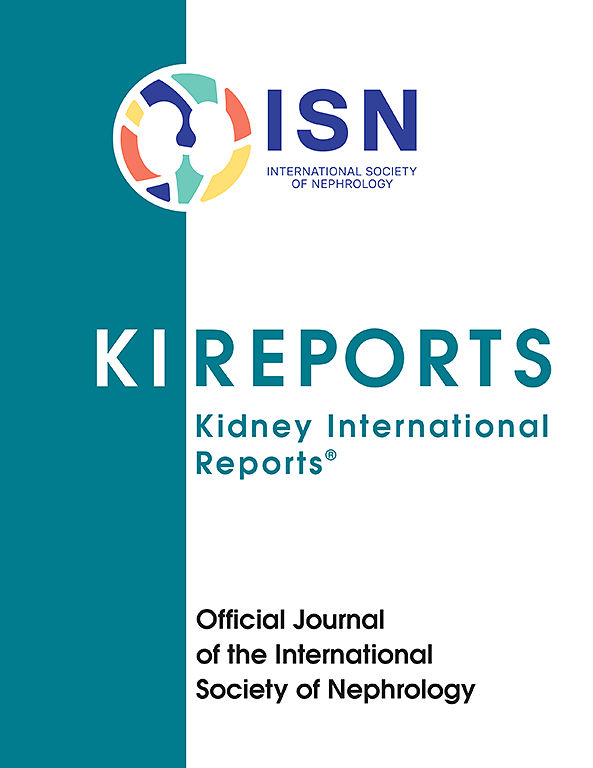中东和北非的保守肾脏管理:态度、实践和实施障碍
IF 5.7
2区 医学
Q1 UROLOGY & NEPHROLOGY
引用次数: 0
摘要
保守肾管理(CKM)在全球范围内不发达且不易获得,特别是在中低收入国家。本研究旨在了解肾病学家对CKM的看法以及CKM在中东和北非(MENA)地区实施的障碍。方法进行在线调查。通过当地的肾病学会与肾病专家取得联系。根据世界银行对国家收入的分类,回答被分为以下三组:高、中、低收入。结果共分析问卷336份,回复率为34.28%。参与者平均年龄为43.3±9.8岁;50%是男性,91%在城市行医,18%隶属于学术中心。在参与者中,76%来自中等收入国家。近80%的参与者知道CKM, 65%的参与者接受CKM作为肾衰竭的治疗方式。然而,只有20%的医生始终如一地为患者提供CKM,只有16%的医生在他们的机构有正式的CKM项目。其中,12%的人拥有多学科团队,只有6%的人接受过正式的CKM培训。实施CKM的主要障碍是财政和资源限制(分别为37.7%和32.7%)。文化和宗教障碍分别占18.3%和8.6%,在3个收入群体中相似。结论:尽管中东和北非地区对CKM有很高的认识,但其实施仍然很差。主要障碍包括财政限制、资源短缺和缺乏培训。需要进行区域和国家研究,以应对这些挑战,并指导改善CKM可及性和实施的政策。本文章由计算机程序翻译,如有差异,请以英文原文为准。

Conservative Kidney Management in the Middle East and North Africa: Attitudes, Practices, and Implementation Barriers
Introduction
Conservative kidney management (CKM) is poorly developed and not easily accessible globally, especially in middle- and low-income countries. This study aimed to understand the perspectives of nephrologists on CKM and the barriers to its implementation in the Middle East and North Africa (MENA) region.
Methods
We conducted an online survey. Nephrologists were contacted through their local nephrology societies. Responses were divided into the following 3 groups as per the country’s income classification by the World Bank: high-, middle-, and low-income.
Results
A total of 336 surveys were analyzed (response rate: 34.28%). The mean age of participants was 43.3 ± 9.8 years; 50% were male, 91% practiced in urban settings, and 18% were affiliated with academic centers. Of the participants, 76% were from middle-income countries. Nearly 80% of the participants were aware of CKM, and 65% accepted CKM as a treatment modality for kidney failure. However, only 20% consistently offered CKM to their patients and only 16% had a formal CKM program at their institution. Among these, 12% had a multidisciplinary team and only 6% had formal CKM training. The major perceived barriers to CKM implementation were financial and resource constraints (37.7% and 32.7%, respectively). Cultural and religious barriers constituted 18.3% and 8.6%, respectively, and were similar among the 3 income groups.
Conclusion
Despite the significant awareness of CKM in the MENA region, its implementation remains poor. Key barriers include financial limitations, resource shortages, and a lack of training. Regional and national research is required to address these challenges and guide policies to improve CKM accessibility and implementation.
求助全文
通过发布文献求助,成功后即可免费获取论文全文。
去求助
来源期刊

Kidney International Reports
Medicine-Nephrology
CiteScore
7.70
自引率
3.30%
发文量
1578
审稿时长
8 weeks
期刊介绍:
Kidney International Reports, an official journal of the International Society of Nephrology, is a peer-reviewed, open access journal devoted to the publication of leading research and developments related to kidney disease. With the primary aim of contributing to improved care of patients with kidney disease, the journal will publish original clinical and select translational articles and educational content related to the pathogenesis, evaluation and management of acute and chronic kidney disease, end stage renal disease (including transplantation), acid-base, fluid and electrolyte disturbances and hypertension. Of particular interest are submissions related to clinical trials, epidemiology, systematic reviews (including meta-analyses) and outcomes research. The journal will also provide a platform for wider dissemination of national and regional guidelines as well as consensus meeting reports.
 求助内容:
求助内容: 应助结果提醒方式:
应助结果提醒方式:


